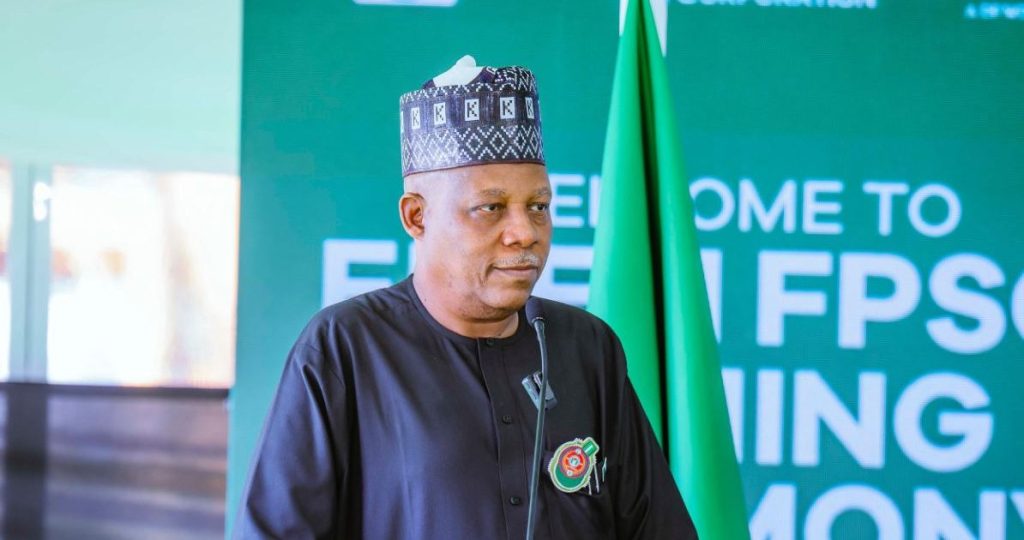Paragraph 1: The Imperative for Land Reform in Nigeria
Nigeria’s Vice President, Kashim Shettima, has underscored the urgent need to review and reform the nation’s 48-year-old Land Use Act of 1978. While acknowledging the Act’s historical significance in shaping land ownership, management, and administration, Shettima, speaking through a representative, highlighted its contribution to systemic challenges that hinder Nigeria’s socio-economic progress. Experts have criticized the Act as an impediment to development, emphasizing the necessity for a comprehensive overhaul to align its policies with sustainable growth, equity, and efficiency. This call for reform resonates with the growing recognition that the existing land governance framework is inadequate to address contemporary realities and unlock the nation’s full potential.
Paragraph 2: Government Initiatives and the National Land Conference
In response to these concerns, the current administration initiated the formation of four reform task teams in January 2024. These teams are charged with developing a strategic blueprint to streamline land administration and facilitate easier, more cost-effective, and efficient access to land. Shettima affirmed the government’s commitment to establishing a National Land Commission, a significant step towards modernizing land governance, and highlighted the drafting of an executive bill for its creation, currently before the National Assembly. Further demonstrating the government’s commitment to addressing land issues, the National Institute for Policy and Strategic Studies (NIPSS) convened a three-day National Land Conference in Abuja to gather stakeholders, analyze existing challenges, and formulate recommendations for reform.
Paragraph 3: Objectives and Significance of the National Land Conference
The Director-General of NIPSS, Professor Ayo Omotayo, emphasized the conference’s crucial role in fostering a national dialogue on land reform. He explained that the conference aimed to retrospectively analyze the land and resource system, generate innovative ideas, and provide actionable recommendations to the government. Omotayo underscored NIPSS’s commitment to contributing to national development and achieving the vision of the founding fathers, aligning with their motto "towards a better society." He stressed that the conference directly addressed NIPSS’s mandate to research and reflect on matters of national interest, particularly as they relate to the success of the current administration’s "Renewed Hope Agenda." The focus on land reform is thus positioned as central to the nation’s overall development strategy.
Paragraph 4: Challenges and Opportunities in Land Governance
Johnbull Amayaevbo, president and founder of the Johnbull Amayaevbo Foundation, stressed the importance of redefining land governance as a catalyst for Nigeria’s sustainable development. He pointed out that despite Nigeria’s abundant land resources, its governance framework is hampered by outdated policies, inconsistent implementation, and administrative bottlenecks. Citing the World Bank’s Ease of Doing Business Index, which ranks Nigeria 169th out of 190 countries in registering property, Amayaevbo highlighted the severity of the situation. He further cited the International Finance Corporation’s estimate that only 3% of Nigeria’s urban land is formally registered, underscoring the vast untapped potential and the significant challenges impeding efficient land administration.
Paragraph 5: The Urgent Need for Sustainable Land Management
The conference also drew attention to the alarming rate of deforestation in Nigeria. Amayaevbo cited the Food and Agriculture Organisation’s report that Nigeria loses approximately 350,000 hectares of forest annually due to unsustainable land use practices. This emphasizes the critical link between land governance reform and environmental sustainability, necessitating urgent interventions to protect Nigeria’s natural resources and mitigate the impact of climate change. The conference aimed to not be a one-off event but rather an annual platform for ongoing engagement, evaluation, and the development of pragmatic solutions for land governance reform.
Paragraph 6: Key Proposals and a Vision for the Future
The conference advanced several key proposals for reforming land governance in Nigeria. These include the establishment of an Office of the Valuer-General, modernization of land administration laws, strengthening land tenure security, and promoting sustainable land management practices. Amayaevbo emphasized the importance of learning from global best practices while contextualizing solutions within Nigeria’s unique socio-cultural and economic landscape. He stressed the need for bold yet practical reforms that prioritize inclusivity and ensure that all segments of society benefit from sustainable development. The overarching goal is to create a land governance system that fosters economic growth, social equity, and environmental responsibility, paving the way for a more prosperous and sustainable future for Nigeria.














